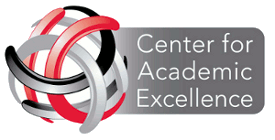Getting Lettered: The Complexity of “Basic” Skills
Location
DSB, Room 111
Start Date
29-5-2013 3:15 PM
End Date
29-5-2013 4:30 PM
Session Type
Interactive Session
Description
Guided by global scholarship in New Literacy Studies, we seek to redefine literacy as an identity. Our purpose is to devise new practices and perspectives that enable our college students to assume the identity of reader and writer. Our objectives for the session are to: describe the challenges of literacy acquisition at all educational levels; identify the particular challenges confronted by educators in higher-level institutions; share some literacy-consciousness-raising strategies developed from our respective disciplines; and target specific areas for development in other disciplines (as represented by audience participants).
Topic Designation
Teaching & Learning, Technology
Presenter Bio(s)
Valerie Allen is a medievalist in the department of English and Shonna Trinch is a linguist in the department of Anthropology at John Jay College of Criminal Justice, CUNY. Having served together on a General Education taskforce and co-taught innovative courses such as “Says who? The Production of Truth” and “The Letter of the Law,” Shonna and Valerie combine their skills in linguistic anthropology and literary history to shed light on students’ relationship to reading and writing. Their goal is to collaborate with teachers in confronting the challenges of understanding literacy. For their collaborative work in researching and teaching these so-called “basic skills” Allen and Trinch received last year both teaching and research awards from their college.
Getting Lettered: The Complexity of “Basic” Skills
DSB, Room 111
Guided by global scholarship in New Literacy Studies, we seek to redefine literacy as an identity. Our purpose is to devise new practices and perspectives that enable our college students to assume the identity of reader and writer. Our objectives for the session are to: describe the challenges of literacy acquisition at all educational levels; identify the particular challenges confronted by educators in higher-level institutions; share some literacy-consciousness-raising strategies developed from our respective disciplines; and target specific areas for development in other disciplines (as represented by audience participants).


